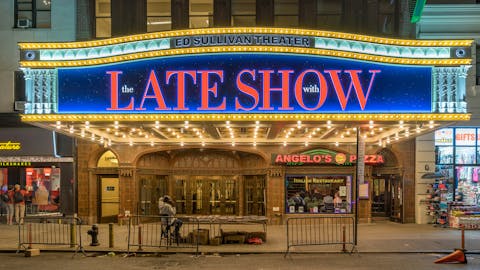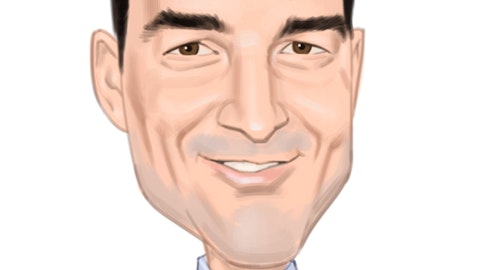Shares of Anheuser-Busch InBev NV (ADR) (NYSE:BUD) are in the green today after the European Commission approved Anheuser Busch Inbev’s merger with SABMiller. Anheuser Busch Inbev’s $100 billion-plus acquisition of SABMiller is set to create a giant in the beer industry, which will account for approximately 30% of the global beer sales. Europe’s antitrust authorities granted the approval to the Belgium based company on a condition that it sells almost all of SABMiller’s beer business in Europe. Anheuser Busch Inbev has already agreed to divest its eastern European assets and sell SABMiller’s Peroni, Grolsch and Meantime beer brands to Japan’s Asahi Group Holdings Ltd. The merger is yet to get an approval in the US and Australia.
The 700+ hedge funds and money managers tracked by Insider Monkey have already compiled and submitted their 13F filings for the third quarter, which unveil their equity positions as of September 30. We went through these filings, fixed typos and other more significant errors and identified the changes in hedge fund positions. Our extensive review of these public filings is finally over, so this article is set to reveal the smart money sentiment towards Anheuser Busch Inbev SA (ADR) (NYSE:BUD).
Despite the merger, hedge funds are not very bullish on Anheuser-Busch and the number of bullish hedge fund positions was cut by four lately. However, the level and the change in hedge fund popularity aren’t the only variables you need to analyze to decipher hedge funds’ perspectives. A stock may witness a boost in popularity, but it may still be less popular than similarly priced stocks. That’s why at the end of this article we will examine companies such as Alibaba Group Holding Ltd (NYSE:BABA), Pfizer Inc. (NYSE:PFE), and Chevron Corporation (NYSE:CVX) to gather more data points.
Follow Anheuser Busch Inbev Sa Nv (NYSE:BUD)
Follow Anheuser Busch Inbev Sa Nv (NYSE:BUD)
Receive real-time insider trading and news alerts
To most stock holders, hedge funds are perceived as underperforming, outdated investment vehicles of the past. While there are greater than 8000 funds trading at present, Our researchers look at the elite of this club, around 700 funds. These investment experts have their hands on the lion’s share of the smart money’s total capital, and by following their highest performing picks, Insider Monkey has uncovered a number of investment strategies that have historically outrun the market. Insider Monkey’s small-cap hedge fund strategy exceeded the S&P 500 index by 12 percentage points per annum for a decade in their back tests.
With all of this in mind, let’s take a look at the key action surrounding Anheuser-Busch InBev NV (ADR) (NYSE:BUD).
What does the smart money think about Anheuser-Busch InBev NV (ADR) (NYSE:BUD)?
At the end of the first quarter, a total of 32 of the hedge funds tracked by Insider Monkey were bullish on this stock, a change of -11% from the previous quarter. With hedgies’ capital changing hands, there exists a select group of noteworthy hedge fund managers who were increasing their holdings significantly (or already accumulated large positions).
According to publicly available hedge fund and institutional investor holdings data compiled by Insider Monkey, Soroban Capital Partners, managed by Eric W. Mandelblatt, holds the biggest position in Anheuser-Busch InBev NV (ADR) (NYSE:BUD). Soroban Capital Partners has a $1.0531 billion call position in the stock, comprising 8.5% of its 13F portfolio. The second most bullish fund manager is Soroban Capital Partners, managed by Eric W. Mandelblatt, which holds a $944 million position; the fund has 7.6% of its 13F portfolio invested in the stock. Other hedge funds and institutional investors that are bullish contain Tom Russo’s Gardner Russo & Gardner, Ken Fisher’s Fisher Asset Management and Peter Rathjens, Bruce Clarke and John Campbell’s Arrowstreet Capital.
Since Anheuser-Busch saw a decrease in the number of funds, let’s take a look at some investors that opted to exit the stock during the first quarter.
Because Anheuser-Busch InBev NV (ADR) (NYSE:BUD) has experienced a declining sentiment from hedge fund managers, it’s safe to say that there is a sect of hedgies who were dropping their full holdings by the end of the first quarter. Intriguingly, Chase Coleman’s Tiger Global Management LLC said goodbye to the largest stake of the “upper crust” of funds watched by Insider Monkey, comprising about $235.6 million in stock. Robert Rodriguez and Steven Romick’s fund, First Pacific Advisors LLC, also said goodbye to its stock, about $142.4 million worth. These bearish behaviors are intriguing to say the least, as aggregate hedge fund interest dropped by 4 funds by the end of the first quarter.
Let’s now review hedge fund activity in other stocks – not necessarily in the same industry as Anheuser-Busch InBev NV (ADR) (NYSE:BUD) but similarly valued. We will take a look at Alibaba Group Holding Ltd (NYSE:BABA), Pfizer Inc. (NYSE:PFE), Chevron Corporation (NYSE:CVX), and Royal Dutch Shell plc (ADR) (NYSE:RDS). All of these stocks’ market caps are closest to BUD’s market cap.
| Ticker | No of HFs with positions | Total Value of HF Positions (x1000) | Change in HF Position |
|---|---|---|---|
| BABA | 67 | 5139777 | -10 |
| PFE | 119 | 8371790 | 10 |
| CVX | 46 | 1713423 | 2 |
| RDS | 34 | 915808 | 6 |
As you can see these stocks had an average of 67 hedge funds with bullish positions and the average amount invested in these stocks was $4035 million. That figure was $5146 million in BUD’s case. Pfizer Inc. (NYSE:PFE) is the most popular stock in this table. On the other hand Royal Dutch Shell plc (ADR) (NYSE:RDS) is the least popular one with only 34 bullish hedge fund positions. Compared to these stocks Anheuser-Busch InBev NV (ADR) (NYSE:BUD) is even less popular than RDS. Considering that hedge funds aren’t fond of this stock in relation to other companies analyzed in this article, it may be a good idea to analyze it in detail and understand why the smart money isn’t behind this stock. This isn’t necessarily bad news. Although it is possible that hedge funds may think the stock is overpriced and view the stock as a short candidate, they may not be very familiar with the bullish thesis. In either case more research is warranted.
Disclosure: None




